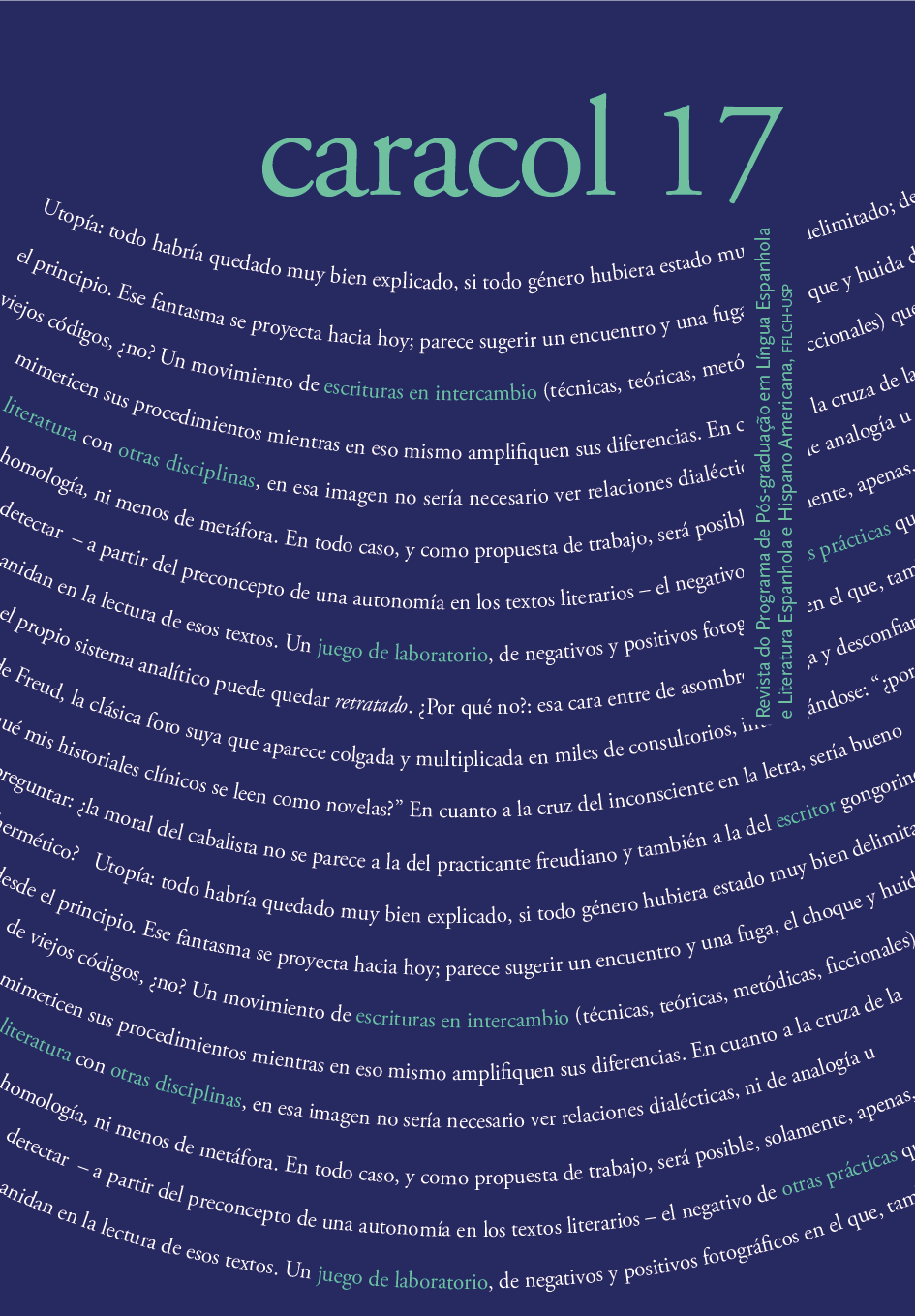Ways of resisting in Fruta Podrida by Lina Meruane
DOI:
https://doi.org/10.11606/issn.2317-9651.v0i17p285-299Keywords:
exform, the rest, discourse, poetry, desubjetivationAbstract
This paper proposes a reading of Fruta podrida by Lina Meruane that unfolds from the question about the tensions between (un)productive discourses, about the place occupied by bodies and poetry in relation to the discourses of knowledge and what is useful . To approach these tensions, we use two theoretical figures: exform (Bourriaud) and the rest() (Cragnolini). The research revolves around the different modes of resistance in the novel-the silence, poetry, desubjectivation-against the discourse of the medical institution and the market. The tension between the stabilizing power of the Institution and the impugnation of this discourse fosters a resistance in that decomposition of the discourse that allows other modes, languages or subjectivities to survive as the rest or exform.
Downloads
References
Badiou, A. El Siglo, Buenos Aires: Manantial, 2005.
Bourriaud, N. La exforma, Buenos Aires: Adriana Hidalgo, 2015.
Cragnolini, M. "El sexto siempre vuelve". Otra parte. Revista de letras y artes 18, Buenos Aires, (2009): 20-24.
Deleuze, G. Crítica y clínica. Barcelona: Anagrama, 1996.
Nancy, J. Corpus. Madrid: Arena, 2010.
Meruane, Lina. Fruta podrida, Buenos Aires: Eterna cadencia, (2015) [2007].
Quintana, I. “Parcelas de vida: el arte y sus restos”. 452° F. N°17, (2017): 122-138.
Downloads
Published
Issue
Section
License
Copyright (c) 2019 Julieta Novelli

This work is licensed under a Creative Commons Attribution-NonCommercial 4.0 International License.
Authors who publish in this journal agree to the following terms:
- Authors retain copyright and grant the journal the right of first publication, with the work simultaneously licensed under a Creative Commons Attribution License, which permits the dissemination of the work with recognition of authorship and initial publication in this journal.
- Authors are allowed to enter into additional contracts separately for non-exclusive use of the version of the work published in this journal (such as publication in an institutional repository or as a book chapter), with recognition of authorship and initial publication in this journal.
- Authors are allowed and encouraged to publish and distribute their work online (e.g., in institutional repositories or on their personal page) at any point before or during the editorial process, as this can generate productive changes, as well as increasing the impact and citation of the published work (see The effect of open access…).




